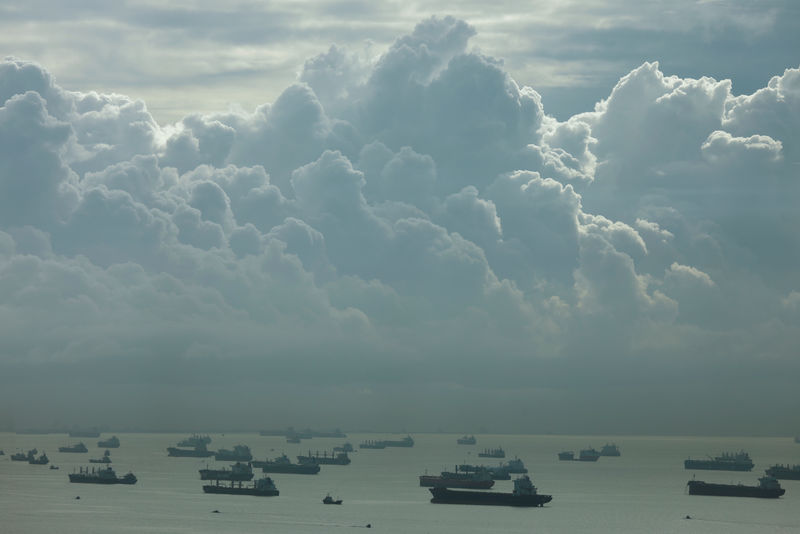By Roslan Khasawneh
SINGAPORE (Reuters) - Tankers that had been scheduled to install emissions-cutting equipment ahead of stricter pollution standards starting in 2020 have deferred their visits to the dry docks to capitalize on an unexpected surge in freight rates, three trade sources said.
U.S. sanctions on subsidiaries of vast Chinese shipping fleet Cosco in September sparked a surge in global oil shipping rates as traders scrambled to find non-blacklisted vessels to get their oil to market.
The rates for chartering a supertanker from the U.S. Gulf Coast to Singapore hit record highs of more than $17 million and a record $22 million to China earlier this week.
By comparison, prior to the sanctions, shipping crude from the U.S. Gulf to China cost around $6 million-$8 million.
(GRAPHIC: Global oil shipping rates surge after U.S. sanctions hit Cosco shipping fleet - https://fingfx.thomsonreuters.com/gfx/ce/7/6970/6952/OilTankerRatesOct182019.png)
The extraordinary spike in freight rates proved too good to miss for some shipowners who were due to send vessels to the dry docks for lengthy retrofitting and maintenance work.
"We can confirm several owners have postponed dry docking earlier scheduled for the months of October and November to take advantage of the skyrocketing freight rates," said Rahul Kapoor, head of maritime and trade research at IHS Markit in Singapore.
The shortage of ships to move crude oil was so acute that some shipowners also switched from carrying so-called 'clean' or refined fuels like gasoline to 'dirty' cargoes that include crude oil, despite the costs of having to clean them later.
"Current rate levels are a no-brainer for pushing back scrubber retrofitting," said Kapoor.
Starting Jan. 1, 2020, the International Maritime Organization (IMO) requires the use of marine fuel with a sulfur limit of 0.5%, down from 3.5% currently, significantly inflating shippers' fuel bills.
Only ships fitted with expensive exhaust cleaning systems, known as scrubbers, which can remove sulfur from emissions, will be allowed to continue burning cheaper high-sulfur fuels.
For scrubbers to be fitted, ships must be sidelined between 30 to 60 days, according to IHS Markit and DNV GL.
While freight rates have abruptly come off their recent highs, shipowners can still profit from the higher charges.
"One cargo loading at current elevated rate levels can not only finance the scrubber capex, but also account for extra costs incurred to install the scrubber at a later date," said Kapoor, referring to the capital expenditure of fitting the scrubber.
Freight rates are expected to hold firm for the rest of the year.

"With seasonal demand support and tanker supply deficit still pronounced, we expect (fourth-quarter) tanker freight rates to stay elevated and end the year on a high note," Kapoor said.